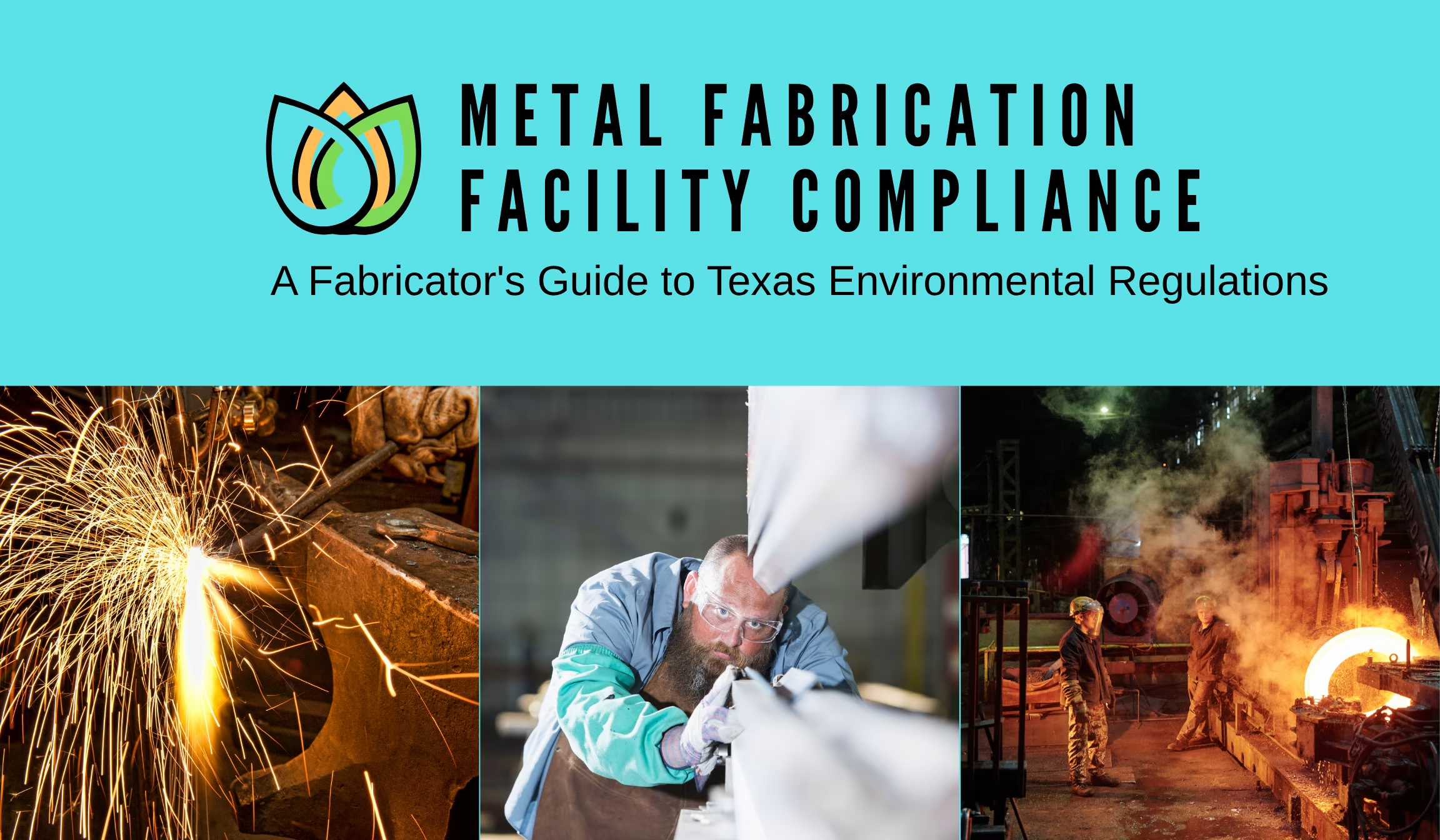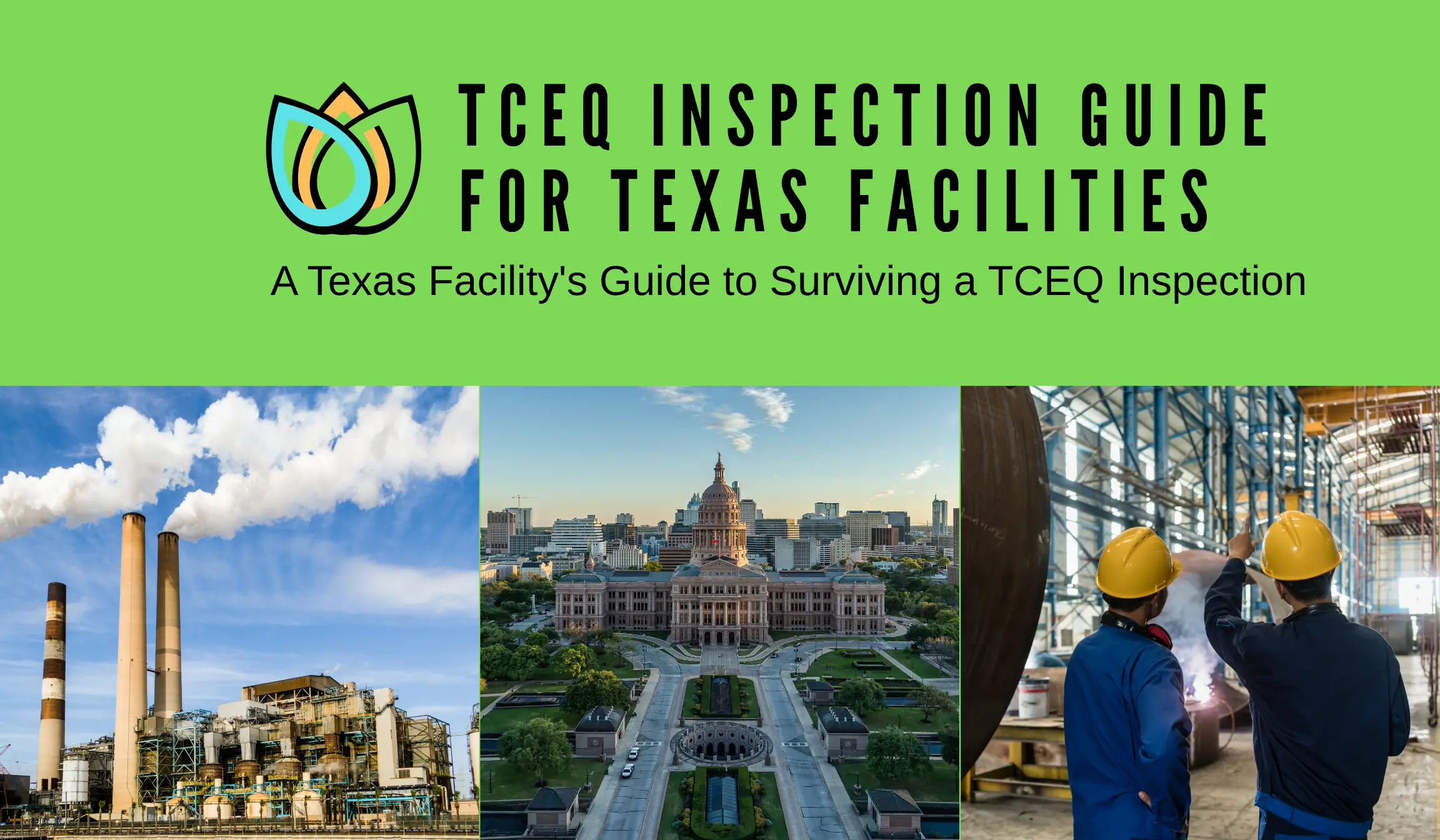A COMPLIANCE GUIDE FOR SMEs
A Business Owner's Guide to Safely Storing Fuel in Texas
Protect your assets, ensure business continuity, and navigate complex regulations for on-site gasoline and diesel storage.
For small and medium-sized businesses in Texas, on-site fuel storage is often a mission-critical component of daily operations. From construction companies powering heavy machinery to landscaping fleets and agricultural enterprises, a reliable fuel supply ensures productivity and business continuity. However, storing gasoline and diesel fuel comes with significant safety risks and a complex web of regulations that can expose your business to liability if not managed correctly.
This guide provides a comprehensive overview for Texas business owners on how to store fuel safely and legally. At Peace Environmental Services, we specialize in helping SMEs navigate environmental and safety compliance, empowering you to protect your employees, your assets, and the environment.
The High Stakes of Improper Fuel Storage
The Legal Landscape: Navigating Texas Fuel Storage Regulations
Fuel storage is governed by a combination of federal standards (OSHA), national fire codes (NFPA), and, most importantly, state and local Texas laws. These are not suggestions; they are legally enforceable requirements.
Key Regulatory Bodies
Your primary sources for Texas-specific rules will be the Texas Commission on Environmental Quality (TCEQ) and your local Fire Marshal's office. Always check with your local fire department, as municipal codes can be stricter than state or national standards.
Commercial & Agricultural Fuel Storage Tiers
For businesses, storage regulations are tiered based on the quantity and type of fuel. Here’s a general breakdown:
- Small Quantities (Under 60 Gallons): Typically involves portable safety cans. These must be stored in a well-ventilated area, away from work areas and ignition sources. A detached shed or a designated outdoor storage cabinet is ideal.
- Medium Quantities (60 - 1,100 Gallons): This often involves one or more Aboveground Storage Tanks (ASTs). TCEQ regulations kick in, requiring spill prevention measures, proper tank labeling, and potentially secondary containment to catch leaks.
- Large Quantities (Over 1,100 Gallons): Storing this amount of petroleum product makes your facility subject to the federal Spill Prevention, Control, and Countermeasure (SPCC) rule. This requires a detailed, site-specific plan certified by a Professional Engineer.
Choosing the Right Container: More Than Just a Can
Using the correct container is non-negotiable. For business use, this means investing in industrial-grade safety cans and tanks that are certified by organizations like UL (Underwriters Laboratories) or FM (Factory Mutual).
Anatomy of a Modern Safety Can
Flame Arrester
A metal mesh screen inside the spout that prevents external flames from igniting the fuel inside the can.
Spring-Loaded Lid
Automatically closes when you release the handle, preventing spills and the escape of flammable vapors.
Pressure Relief
The lid is designed to vent automatically if pressure builds up inside, which is common in the Texas heat.
Fuel Degradation and Stabilization
Fuel doesn't last forever. Over time, it degrades, especially in the warm, humid Texas climate. Using old fuel can lead to costly engine damage and equipment downtime.
| Fuel Type | Shelf Life (Untreated) | Shelf Life (With Stabilizer) | Key Business Impacts |
|---|---|---|---|
| Gasoline | 3-6 Months | 12-24 Months | Clogged fuel lines, engine stalling, costly repairs. |
| Diesel | 6-12 Months | 24+ Months | Clogged filters, injector damage, microbial growth in tanks. |
A quality fuel stabilizer is a wise investment to protect your equipment. Add it to your storage containers or tanks *before* you fill them with fresh fuel. This ensures it mixes properly and provides maximum protection.
Safe Handling & Storage FAQ
Where is the safest place to store fuel for a business?
The safest place to store fuel is in a well-ventilated, detached building or an approved outdoor storage cabinet. This location must be at least 50 feet away from any potential ignition sources, which include welding areas, heaters, electrical panels, and other equipment that can create a spark.
What is the correct way to fill a portable fuel container?
Always place portable fuel containers on the ground before filling. This prevents the buildup of static electricity which can cause a fire. Never fill containers while they are inside a vehicle or on a plastic truck bed liner. Fill the container slowly to about 95% of its capacity to leave room for thermal expansion.
How should a business manage its fuel inventory to prevent it from going bad?
Implement a 'First-In, First-Out' (FIFO) inventory system. Clearly label every container with both the type of fuel and the date it was purchased. Train all employees to use the oldest fuel stock first. This practice minimizes the risk of fuel degradation, which can damage expensive equipment.
What fire safety equipment is required for a fuel storage area?
A properly rated Class B or multi-purpose ABC fire extinguisher must be readily accessible and inspected regularly near your storage area. Ensure employees are trained on how to use it.
Key Resources & Links
For detailed regulatory information, refer to these official sources. These links provide the direct text of the laws and standards governing fuel storage.
OSHA 29 CFR 1910.106
The primary federal standard for handling flammable and combustible liquids in general industry.
www.osha.gov/laws-regs/regulations/standardnumber/1910/106
OSHA 29 CFR 1926.152
Specific federal fire protection and prevention standards for the construction industry.
www.osha.gov/laws-regs/regulations/standardnumber/1926/152
TCEQ Hazardous Waste Resources
Information from the Texas Commission on Environmental Quality on finding licensed disposal facilities.
www.tceq.texas.gov/p2/hhw/hhw.html
Is Your Business Compliant? Let Us Help.
Accidents and regulatory violations can be costly. If you have a fuel spill or need assistance ensuring your commercial or agricultural storage meets Texas and federal regulations (including SPCC plans), Peace Environmental Services is your expert partner. We provide professional spill response and compliance consulting to protect your business, your employees, and your bottom line.


